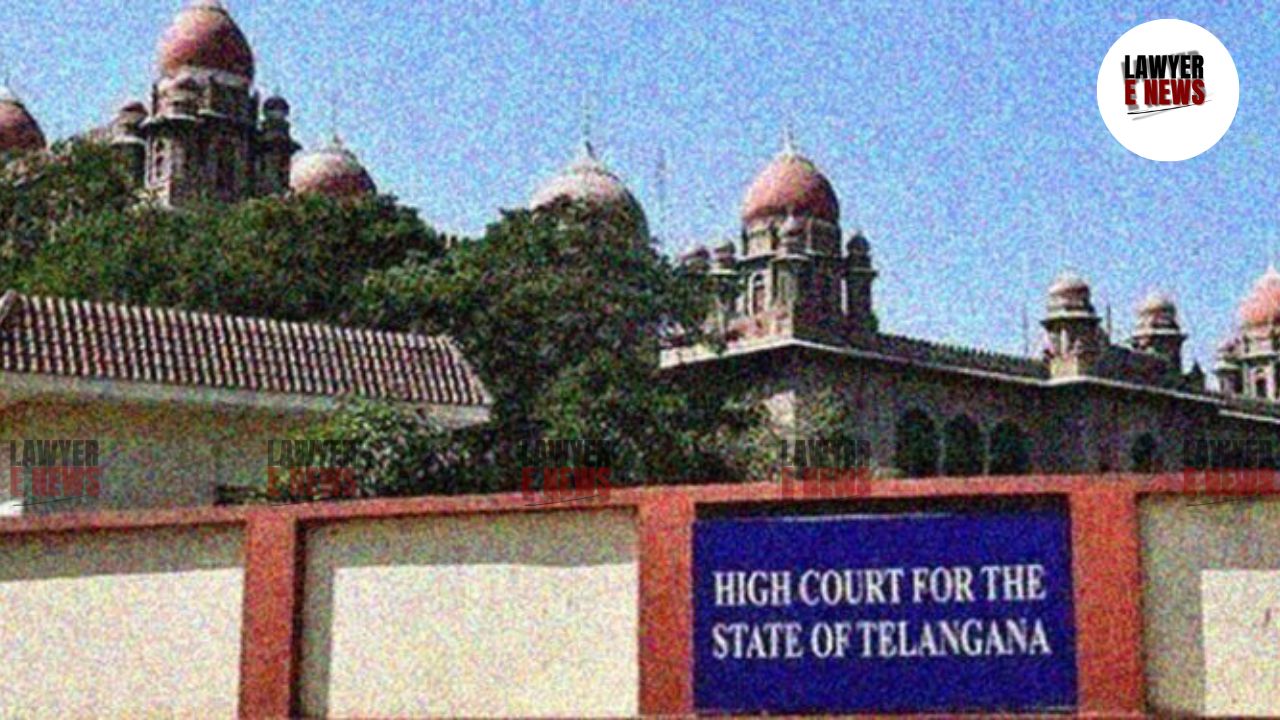-
by Admin
17 February 2026 2:34 PM



“Merely giving a political call for a rail roko does not amount to commission of an offence — especially when no witness speaks of the accused playing any active role in the protest or causing obstruction.”
Bringing closure to a case that lingered for over a decade, the Telangana High Court on April 3, 2025, quashed the criminal proceedings pending against former Chief Minister K. Chandrashekar Rao (KCR), who was arrayed as Accused No.15 in a 2011 rail roko agitation linked to the separate Telangana movement.
Justice K. Lakshman, allowing the criminal petition filed under Section 482 CrPC, held that the prosecution’s material failed to disclose any active involvement of KCR in the alleged offences, and continuing the trial would be an abuse of the judicial process.
“Except the allegation that he gave a call for rail roko, there is no specific accusation or witness statement linking the petitioner to any unlawful act or obstruction. The continuation of proceedings would be unjust.”
“A Political Call for Protest Isn’t a Crime — No Material to Show He Was Even Present at the Scene”
The case stemmed from a complaint lodged on 15 October 2011, when protestors allegedly blocked railway tracks at Secunderabad, following a call by the Telangana Political Joint Action Committee, which KCR then headed. The protest led to disruption of trains and alleged threats by some participants against police.
But the Court found that while the First Information Report (FIR) named KCR for giving the protest call, none of the 10 eyewitnesses or 2 panch witnesses mentioned any direct act or presence of KCR at the protest site.
“The statements recorded under Section 161 CrPC do not establish any role of the petitioner in the actual protest. All they say is that the JAC gave a call — that alone doesn’t make out an offence.”
“Charge Sheet Itself Shows He Was Absent — But Still Made an Accused After 10 Years”
Notably, the charge sheet was filed in 2013, but KCR was shown as absconding, and the case against him was split and renumbered as C.C. No. 393 of 2023, over a decade later. The Court found this delay unjustified and procedurally questionable.
“There is no clarity why he was shown as absconding, nor was any effort made to serve summons or issue process for 10 years.”
The Court further observed that none of the procedural safeguards under Section 195(1)(a) CrPC were followed — a requirement for prosecuting offences like Section 188 IPC (disobedience of order of public servant), unless a complaint is filed by the concerned public servant or their superior.
“No Mens Rea, No Injury, No Incident Directly Attributed to Him — You Can’t Use Criminal Law to Penalize Political Dissent”
The FIR invoked multiple charges including unlawful assembly (147 IPC), obstruction (341 IPC), assault on public servant (353 IPC), criminal intimidation (506 IPC), and violations under the Railways Act and Prevention of Damage to Public Property Act.
But the Court found the allegations lacked basic ingredients required for prosecution.
“There’s no proof of instigation, participation, or encouragement by the petitioner. None of the essential elements under Sections 188 or 353 IPC are met.”
Citing past precedents like N.T. Rama Rao v. State of A.P. and Bhajan Lal, the Court reaffirmed the principle that political protest calls, without active involvement or unlawful intent, do not constitute prosecutable offences.
“Quashing proceedings is necessary to prevent misuse of criminal process — you can't turn a peaceful protest call into a criminal trial without evidence.”
Accordingly, the Court quashed the proceedings in C.C. No. 393 of 2023 pending before the Special Judicial Magistrate for Excise Cases, Hyderabad, in respect of Accused No.15 — K. Chandrashekar Rao.
“This is a textbook case of criminal law being used to penalise symbolic leadership in mass movements — the law does not support such misuse.”
Date of Judgment: 03/04/2025
